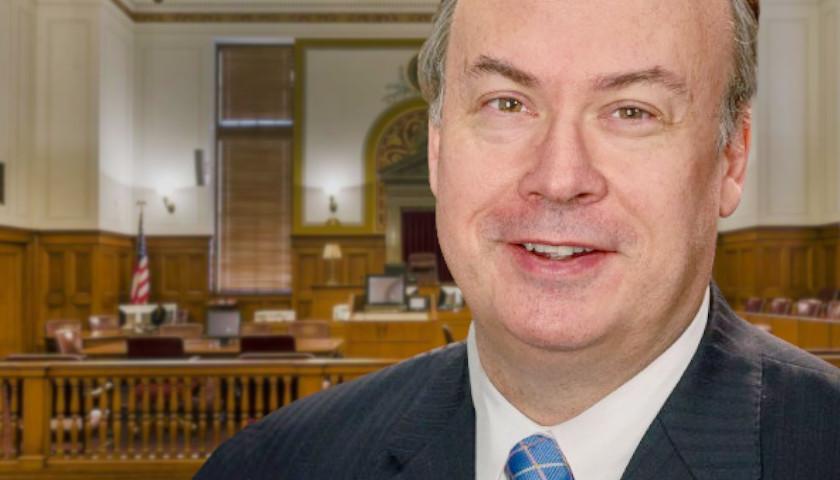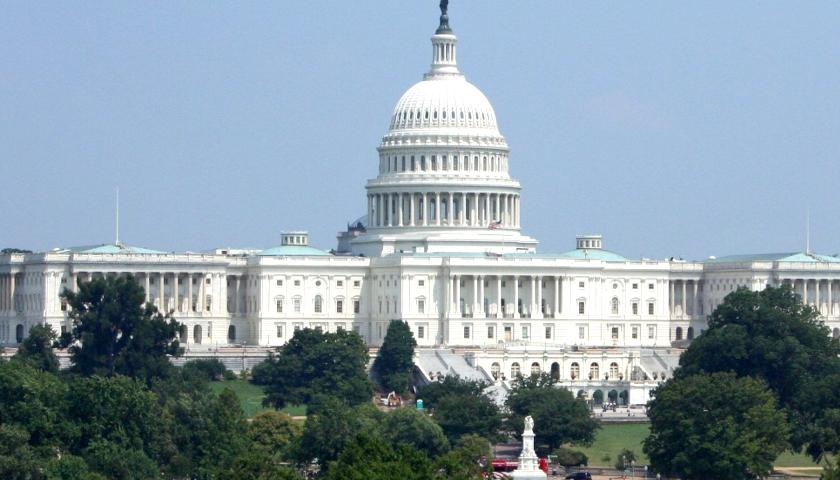America First Legal (AFL) filed an amicus curiae brief on behalf of former President Donald Trump’s former DOJ official, Jeffrey Clark, this month, objecting to a recommendation from the three-person panel of the D.C. Board of Professional Responsibility to discipline him over his concerns about illegalities in the 2020 election. The brief points to the Supreme Court’s new ruling in Trump v. United States, which held that presidents have broad immunity for their official acts. The D.C. Bar filed charges against Clark for drafting a letter never sent to Georgia officials advising them of their options in dealing with the irregularities.
The brief, authored by Gene Hamilton, AFL’s executive director and chief counsel, summarized, “This proceeding should be discontinued because of its threat to our constitutional system’s separation of powers. … This proceeding appears to target Mr. Clark inappropriately for his political beliefs, partisan affiliation, and connection to former President Donald Trump. Such abuse of Bar oversight chills zealous advocacy in politically sensitive matters and should never be permitted.”
The brief emphasized that Clark never filed a legal pleading and never even sent his draft memo to anyone; “it was, at most, a draft letter proposing a position to DOJ leadership.” It noted that the D.C. Bar’s Office of Disciplinary Counsel (ODC) admitted in pleadings that these statements by Clark’s legal team were correct: “Once the President made his decision not to send the draft letter, that was the end of the matter. And, once the President decided, there is nothing in the record that would show that Mr. Clark did anything other than abide by the final decision of the President.”
AFL asserted, “Such actions are not subject to review by the Judiciary.”
After the disciplinary panel recommended disciplining Clark, the Supreme Court issued Trump v. United States on July 1. The brief said the decision “established that the President is entitled to broad immunity from criminal prosecution for official acts.” It explained how the decision encompasses the president’s senior officials.
Citing Article II, Section 2, Clause 2 of the Constitution, the brief said, “In carrying out his duties, the President ‘may require the Opinion, in writing, of the principal Officer in each of the executive Departments, upon any Subject relating to the Duties of their respective Offices.’ … Here, Disciplinary Counsel explicitly seeks to punish the President’s official exercise of core powers — which the Supreme Court has unequivocally held to be an unconstitutional infringement on the powers of the Executive Branch — by going after a senior official who drafted a letter and offered an opinion.”
That portion of the Constitution addresses the president’s powers overseeing his appointments.
AFL said the D.C. Bar admitted in its pleadings that Clark was doing what Trump asked him to do with the draft memo. The D.C. Bar said in its Proposed Findings of Fact and Conclusions of Law, which was filed in April, “This was an attempt to do the President’s dirty work to undermine, with no basis, the integrity of a presidential election.”
Clark was not acting alone, AFL said, adding that the D.C. Bar admitted so. “Disciplinary Counsel does not, at any point, imply that Mr. Clark struck out on his own; to the contrary, he is alleged to have acted at the President’s behest,” the bar said.
The Supreme Court held in the 1976 case Imbler v. Pachtman, “In justifying absolute immunity for certain officials, both at common law and under 42 U.S.C. § 1983, courts have invariably rested their decisions on the proposition that such immunity is necessary to protect the decision-making process in which the official is engaged.”
The AFL said, “Mr. Clark exercised no power that did not derive directly from the President’s core role as Chief Executive, and his actions were performed at the President’s request.”
The brief refuted arguments put forth by the D.C. Bar. The ODC argued that “the McDade Amendment allegedly precludes such immunity.” The McDade Amendment is a federal law that requires federal prosecutors to abide by the state ethics rules of the jurisdiction in which they practice. However, the brief said the Supreme Court refused that theory in Trump v. United States. “Congress cannot act on, and courts cannot examine, the President’s actions on subjects within his ‘conclusive and preclusive’ constitutional authority,” the nation’s highest court opined.
AFL noted that while Trump v. United States primarily addressed criminal immunity, “longstanding, black-letter law confers [civil] immunity on Mr. Clark” as well. Additionally, the proceedings are partially criminal, the brief asserted. It cited a District of Columbia Court of Appeals case, In re Williams, which stated, “It is well settled that disciplinary proceedings are quasi-criminal in nature and that an attorney who is the subject of such proceedings is entitled to procedural due process safeguards.”
The brief concluded, “The Board should immediately dismiss the disciplinary proceeding against Jeffrey Clark because, based upon the conduct alleged, the separation of powers around which our Constitution is built entitles him to immunity from such a proceeding.”
AFL said it was highly interested in the case due to its Washington, D.C. operation. “As a District-based public-interest legal organization, AFL has a substantial interest in this case because many of its lawyers routinely practice within the District of Columbia and are members of the D.C. Bar, by virtue of which they have a profound interest in how the D.C. Bar is regulated,” the brief said.
AFL filed a lawsuit against Arizona officials earlier this year, alleging numerous election law violations since 2020.
The recommendations from the three-member committee of the District of Columbia Board on Professional Responsibility were sent to the full Board of Professional Responsibility. After the board’s decision, Clark can appeal that to the D.C. Court of Appeals. The pleadings in Clark’s case and those to disbar Rudy Giuliani are located here.
– – –
Rachel Alexander is a reporter at The Arizona Sun Times and The Star News Network. Follow Rachel on Twitter / X. Email tips to [email protected].





